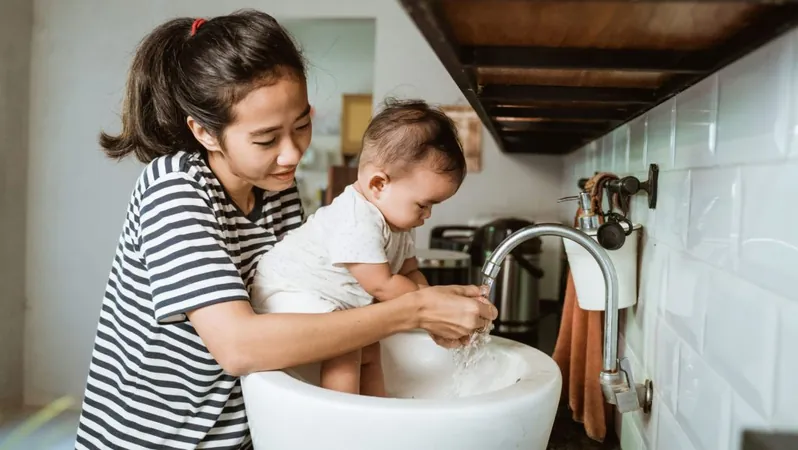
More Than Just Help: Singaporean Families Embrace Domestic Workers as Family Members!
2024-10-02
Author: Nur
SINGAPORE: A Unique Dynamic
In the bustling city-state of Singapore, domestic workers, many of whom come from neighboring countries, play an essential role in the fabric of society. While they are formally classified as employees, the nature of their work often transcends traditional employer-employee dynamics, leading many families to view their domestic helpers as beloved family members.
Building Strong Connections
The close proximity in which domestic workers and families operate—often caring for children and the elderly—fosters deep, lasting connections. It's not uncommon for these workers, who often stay for years, to become integral to the family unit, often stepping into roles that resemble that of a surrogate mother.
Real Stories, Real Bonds
Recently, local media highlighted the stories of three Filipino helpers who have grown remarkably close to the families they assist. The initial adjustment period can be challenging, but as trust is established, bonds strengthen. Families frequently share their most vulnerable moments with these helpers, which lays the groundwork for intimate relationships.
Shared Experiences
This shared journey leads to memorable experiences, such as families inviting their helpers on vacations or treating them to special outings. In return, many helpers use their earnings to build homes in their native lands or provide better educational opportunities for their children, contributing to financial stability for their families back home.
Voices of Appreciation
One employer’s daughter expressed this sentiment beautifully, stating, “To me, she lives in the house; she’s family.” Likewise, a young boy affectionately told his helper, “You are not my maid. You are my aunty.”
A Sisterly Bond
A woman shared her perspective, saying, “My helper is like a sister to me and a second mom to my adult kids! When she first joined the family, my only request was that my kids are a top priority. If they are taken care of, housework is secondary!”
Creating a Compassionate Society
Recognizing domestic helpers as part of the family can lead to a more compassionate society, as argued by Ming En Liew in The Homegrown Asia. Embracing these workers as extensions of the family may create a more harmonious, understanding environment—beneficial for both domestic workers and their employers.
The Importance of Good Treatment
Linda Seh, an employment industry veteran with over two decades of experience, emphasizes the importance of treating helpers well. “When you treat a foreign domestic helper like family, communication improves, and she is more likely to be receptive to your ideas,” she states.
Advocating for Fair Treatment
Ultimately, agencies across Singapore advocate for the fair treatment of domestic helpers, positing that happy workers lead to efficient, positive environments. By integrating these individuals into the family dynamic, employers not only elevate their character but also enhance the overall quality of life for everyone involved.
A Future of Mutual Respect
In a world where caring for one another is increasingly crucial, the relationships forged between employers and domestic helpers challenge traditional norms and pave the way for a future built on mutual respect and understanding.

 Brasil (PT)
Brasil (PT)
 Canada (EN)
Canada (EN)
 Chile (ES)
Chile (ES)
 España (ES)
España (ES)
 France (FR)
France (FR)
 Hong Kong (EN)
Hong Kong (EN)
 Italia (IT)
Italia (IT)
 日本 (JA)
日本 (JA)
 Magyarország (HU)
Magyarország (HU)
 Norge (NO)
Norge (NO)
 Polska (PL)
Polska (PL)
 Schweiz (DE)
Schweiz (DE)
 Singapore (EN)
Singapore (EN)
 Sverige (SV)
Sverige (SV)
 Suomi (FI)
Suomi (FI)
 Türkiye (TR)
Türkiye (TR)